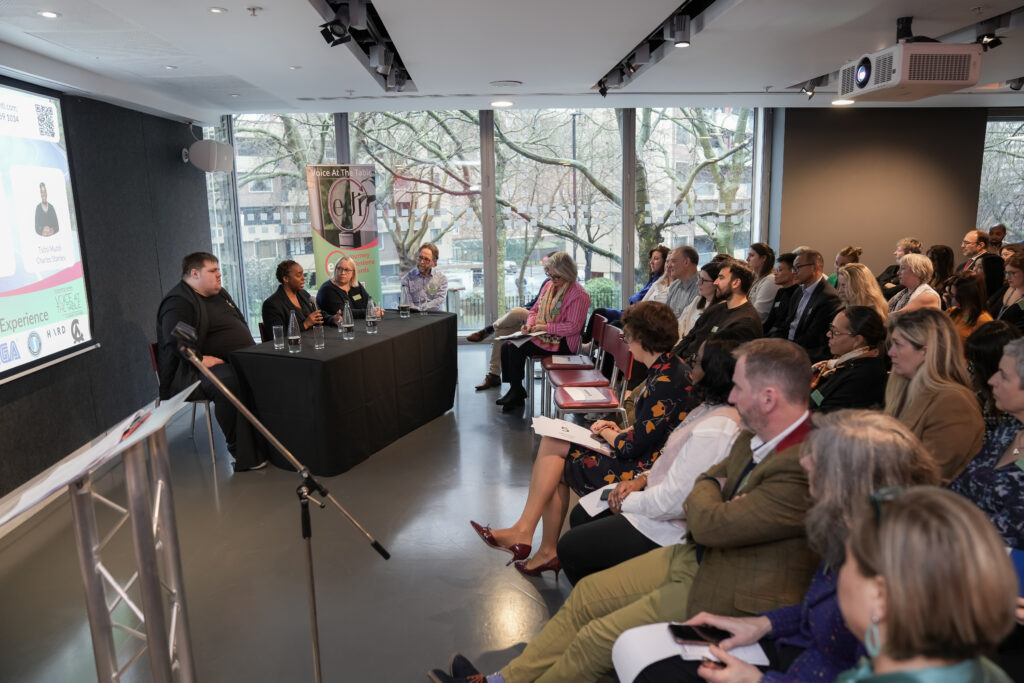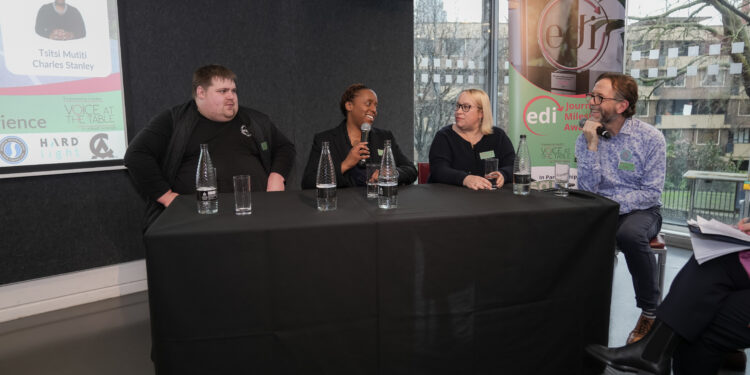At our conference in February 2024, we gathered together 120 committed people who believe that we all have a part to play in driving Diversity over the next decade.
Our panel discussions were lively, honest and thought-provoking, and we all learnt a great deal from each other. We are grateful to the panellists, our moderators and the other EDI advocates in the room, who brought a range of challenging and productive questions to the discussions.
When it comes to progressing EDI, here are 10 learning points from the conference:
1. Employee Networks are still important. Their focus has shifted from being purely support and event-driven to facilitation of EDI strategy and collaborating with EDI leaders to achieve impactful results.
2. Make the extraordinary more ordinary. It’s valuable to acknowledge great achievements by members of underrepresented groups. But what we need even more is to see what we think of as ‘unusual’ to be part of the norm. Two men holding hands, a person in a wheelchair shopping alongside ourselves, female leaders being referred to simply as ‘leaders’. When we’re able to see the unusual as usual is when we will get closer to true Inclusion.
3. Allies are key, especially those with the power to influence. Male leaders, for instance, as executive sponsors or advocates, when they lead by example and speak up when others might not.
4. There is still a divergence between what leaders think is important and what employees think is important, as often evidenced in pulse surveys and similar metrics.
5. Listening and empathy remain the top leadership skills evading many leaders. This makes it more difficult for these leaders to be truly inclusive and, in this way, to create psychological safety in their teams.

6. Although intersectionality is an important aspect of Diversity, we also need to understand that people have a hierarchy of their own identities. For instance, many Black women see themselves as Black first, then as women. Another example is people with disabilities who are also members of the LGBTQIA+ community might be perceived first as a person with disabilities but they would describe themselves for example as gay before disabled.
7. Because we know that diverse voices lead to better results, it’s important to create structured ways for people from underrepresented groups to progress. In this way, their voice can be more impactful.
8. Ask yourself: as an organisation, is this the best we can do? And take the conversation from there. It is remarkable how motivating it can be to put yourself to the test of what’s possible and needed.
9. Anything that’s truly good requires hard work. When it comes to EDI, we need to be reminded of this when we’re asked to do things that are not easy. “It’s tough, but we’ll get there!”
10. Having four or five generations in the workplace is a gift. We just need to understand how to take advantage of it.
Does any of the above speak to you? Or, if you were there on the day, was there anything else that made a big impact on you? Please take a moment to share with us – we would love to hear your insights.
Suggested Reading


Bridging the Generation Gap: How to make the most of everyone’s experience


